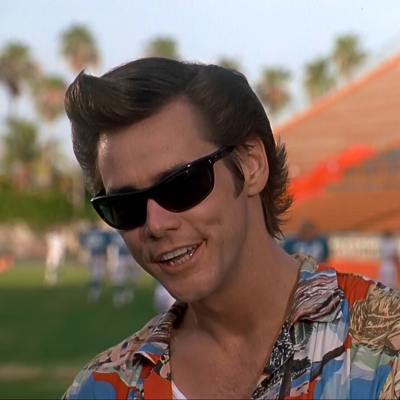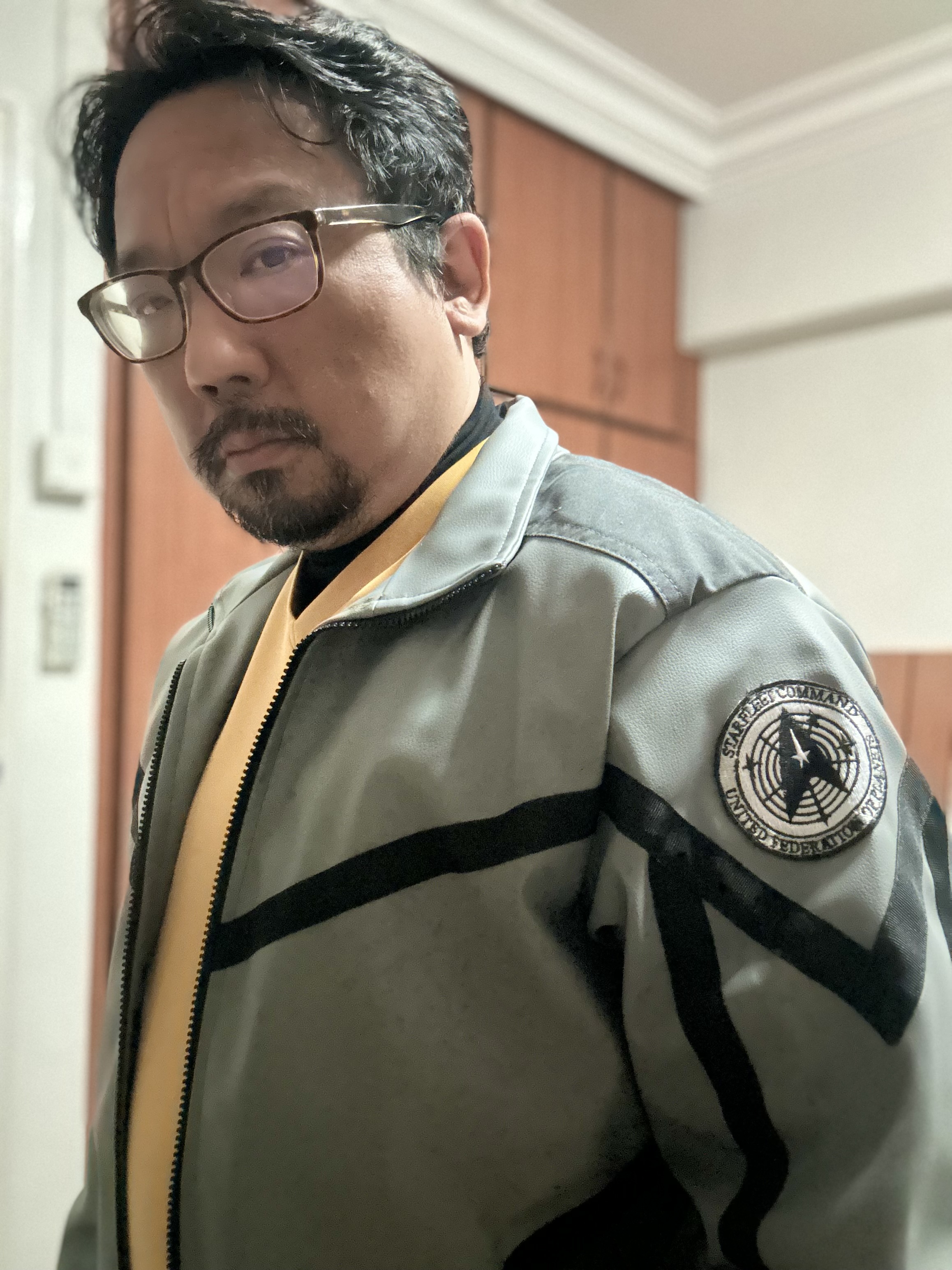Logline
Commander Una Chin-Riley faces court-martial along with possible imprisonment and dishonorable dismissal from Starfleet, and her defense is in the hands of a lawyer who’s also a childhood friend with whom she had a terrible falling out.
Written by Dana Horgan
Directed by Valerie Weiss
deleted by creator
I really like the look fo the dress uniforms. Surprised that they never got Pike to the stand, especially after Una confessing that she told Pike 4 months ago.
Now that the cast has been reset, I’m ready for them to explore some strange new worlds.
This was a fantastic episode. One thing I liked in particular was that they had an actual lawyer defend Una, and not just have Pike do it.
Oh yeah, an actual lawyer and one who was not assigned by Starfleet. Una was also spot on with her complaint that her original counsel was paid by those prosecuting her. 👏
They kept the tradition alive by having a starship captain handle the prosecution, though.
But in contrast, this lawyer (Neera) won by mainly by being a good lawyer (albeit in a tv legal drama kind of way). Setting things on fire with the first witness to create a bunch of fog and doubt about the premise of the case, realising that other important regulations impinge on the case and setting up testimony to substantiate the effect of those regulations.
My memory of most other officer-lawyers is that their methods tend to focus more on the moral “issyew” (Picard’s pronunciation of “issue” in Measure of a Man).
“issyew”
/ˈɪsjuː/ is very common in RP. You hear it all the time in parliament.
I largely quite like SNW, but this episode had some extremely questionable eugenics apologia laced into the narrative.
I think the broadest problem with nu-trek (though it’s strongly reined in in SNW) is the heavily maudlin over-scoring and the bathos-laden dialogue. When almost every exchange between two characters sounds “perfectly written” and is dripping in score, it’s hard to take seriously.
If SNW employed like, 20% more restraint in that regard, it would sing.
“I regret that you had to witness that outburst.”
Best line in the show!
Yeah Spock makes this show much better
I really like this Spock, don’t get me wrong, but I’m finding his increasing “humanness” a bit distracting. I mean, making a joke in court? That was a bit far-fetched.
One of the problems that this show has to grapple with is that we already know Spock very well from Leonard Nimoy’s portrayal. I’d go so far as to say that - notwithstanding a few gaps - every major event of his life is known to the audience, and we are very familiar with how he’s “meant to be”.
What then is an actor to bring to such a part? Ethan Peck can’t just replicate Nimoy’s performance - for one thing, it would be boring. The writers take advantage of this series being a prequel to do the only thing they can: show how Spock became the Spock that we know from TOS. They use his appearance in the TOS pilot “The Cage”, where he was visibly more emotional and “human”, as a touchstone, and make his journey towards emotional control and “Vulcan-ness” part of his character arc for this show.
I went into it a little in another post, but I think Spock’s manner is more familiar and “one of the guys” because he’s allowed himself to become emotionally attached to the rest of the crew, and that bleeds into his personality, making him more liable to use humour and jokes to relieve tension. A few years later, when Kirk takes command and many of these officers have moved on, he decides that he will be more emotionally guarded, letting his guard down only with Uhura and Chapel - and only in brief, relaxed moments.
I took as needling the Vulcan Jag…which he couldn’t resist. The set-up was his uncontrolled outburst in the Enterprise mess.
While it was played as a joke, the whole “was she hiding something” had me on first watch going “but everyone is hiding something, surely”
Spock was highlighting this with his trademark precision.
I really enjoyed it. Star Trek is at its strongest when it gives itself time to mull over philosophical, ethical, and social issues. This episode really knocked it out of the park. Just really well-written overall.
Loved it. Star Trek has always been handwavy with legal rules in favour of a compelling debate and this was no exception.
As a Canadian, I instantly started thinking about the metaphor in terms of laws the Canadian government had against indigenous people practicing or teaching their cultural practices.
On the other hand, as a gay man, I was thinking about when homosexuality was considered a criminal practice and how sometimes gay men will stay in the closet to avoid discrimination.
One of the things that’s most interesting to me is how many minorities groups Una’s experience maps to in some rhyming way.
I’ve heard a number of people interpret it about themselves, which is really good, the allegory was understandable while still being a cohesive story.
I thought trans people were a good fit for the metaphor, given the body alterations that can be involved.
This was an absolute gem. I don’t have much of substance to add just now (except that those dress uniforms are very nice), but after being on the whole disappointed by the season opener I am extremely pleased with this episode. Definitely one of the strongest in the show so far, which is no small feat.
That was a beauty! I love this crew! Seeing them all back Una up made me quite emotional. I’m a soppy git.
Is it me or is SNW the best looking trek ever? Everything just looks so cool. I bloody love it.
What a beautiful episode. The message was great and it wasn’t ambiguous enough for people to really misinterpret or miss it while still remaining an indirect allegory for current times. The allegory was clearly about either homosexuality or undocumented immigrants and I appreciate that people from either group can likely relate to this episode. As a gay guy I have to say I definitely did.
Also, the scene with Spock’s “outburst” was hilarious and I loved seeing the (on the surface) emotionless Spock once again.
Overall I loved the episode and I’m very glad to see one I love after personally disliking the previous one.
The allegory was trans people. Hence all the talk of needing to ‘pass’ to be accepted and the wonderful lil touch of Unas child cast being the colours of the Trans flag
It is not unlikely that this is the allegory they had in mind primarily, but so much of the bigotry and hatred depicted applied to gays, blacks, jews, women and probably more groups, too.
We’re rhyming history, every generation we’re trying to overcome prejudice, oppression and hatred against a new minority, only for some to conjure up a new distinguishing feature to define a minroty to be ostracized. It feels like treading water sometimes, can’t we just cut through the bullshit in one go, but no, we have to go through all the steps, while some new group (or a subgroup of a previous group) has to endure all the pain this brings. Sometimes it feels like we’re not really getting better. But maybe we are. But it’s still too slow, it still repeats itself, and nowadays we might experience multiple such cycles in our lifetime, when at some point it took generations to get that kind of progress?
There were also parts of it that could easily be interpreted as Jim Crow era politics. Passing was a thing for Blacks as well. Splitting into two different cities reminded me of both redlining and “separate but equal.” Of course, history repeats itself, and this allegory could also be applied to Jews, Native Americans, and any other persecuted minority, including gay and trans people. Una’s whole situation could pretty easily be mapped onto a “don’t ask, don’t tell” situation as well.
Ah, I’d missed that detail. I was on the fence about whether or not it was a trans allegory because it didn’t initially feel like there were as many similarities in her story to being trans as there was to homosexuality and being an undocumented immigrant but upon further consideration I have to agree. Though it does seem to me like it is also about those other groups I mentioned. I suppose it’s a bit of a catch-all (which worked great).
The way Illyrians were segregated into Illyrian and non-Illyrian cities except for people who could pass echoes the Jim Crow era of US history, with black people being segregated and some of them trying to pass for white.
The refusal of service to those who were found to be Illyrian is like antisemitic attitudes in pre-war Nazi Germany, or the refusal of service to homosexuals. Most of what happened can be compared to any persecuted minority, racial or sexual.
That’s the beauty of a good metaphor. And the ugly universality of bigotry.
Measure of a woman
Ad Astra Per Aspera
A beautiful title, I remember watching the anime Ad Astra a few years back. They had a ROUGH time.
Through hardships, to the stars.
You had your playtime, acting like one of them. Accept your dismissal, take your licks and go home.
Una: No. (Why not?) Because I shouldn’t have to hide anymore. None of us should. I know I should have done better. I didn’t stand up when I should have. I’m standing up now.
YES! GIVE ME THAT STRENGTH!
So it was either dishonorable discharge OR Dishonorable discharge with 20 years in a penal colony.
That’s a rough decision.
GIVE EM HELL UNA!
So La’An has an idea that the evidence against Una might have been illegally obtained. This is going to be a really in depth court drama from Star Trek!
La’An: We need to find out who turned her in. It might well be the only way to save her.
But Uhura strictly refuses La’An’s illegal order. :|
Counselor: Admiral, it would seem that the rules of Starfleet only apply when a captain deems that they do. (Robert April: Is there a question Counsellor?)
You have shown that you have been repeatedly willing to break the very first order of starfleet and you are hailed a hero. you can break the law if you so choose. So, hiding behind order and protocol to explain why you would not have admitted Una Chin-Riley to Starfleet is a sanctimonious falsehood, is it not?
And of course the JAG gets pissed off at that type of reasoning, how convenient.
Counsellor: My client did not ask to be genetically modified. It is an Illyrian cultural practice done to children before they are even born. It is done for survival and yet she has been arrested because of a violation of a law. But the Admiral has just shown us that Starfleet regulations are are flimsy and subjective at best.
Spock’s line about what una was hiding OMG!!!
Spock: Yes, I did get the feeling that she was hiding something.
Neera: What was she hiding?
Spock: An affanity for Gibert and Sullivan musicals.
A BRITISH TAR IS A SOARING SOUL AS FREE AS A MOUNTAIN BIRD HIS ENERGETIC FIST SHOULD BE READY TO RESIST A DICTACTORIAL WORD
Spock: Perhaps. Although I think it is illogical for Starfleet to punish itself.
Neera: I’m afraid I don’t understand.
Spock: The loss of Una would be destructive to Starfleet as an organization. She is an extraordinary officer.
Una: She is a Mentor Spock: I have learned a great deal about leadership by serving under her.
M’benga: She puts the lives of her crew above her own. Always.
Spock: She is a friend.
La’An: Family. Una is Family.
And we get more into exactly That.
Counselor: Could it be that you carry your family’s augmentations, and you believe that because of them you may become dangerous?
Una: Yes, I do.
OH MY GOOOOOOD…
Counselor: There is nothing wrong with you Lieutenant, no hidden monster inside. But I do know how they make us feel. They look down at us for so long that we begin to look down at ourselves. Genetics is not our destiny despite what you may have been taught. The fear of yourself it’s not your own. It was drilled into you. You’re not born a monster. You were just born with a capacity for actions, good or ill. Just like the rest of us… i guarantee you are not the the person who leaked Una’s true identity to Starfleet.
“Ad Astra per aspera”
To the stars through hardship.
…
Una: My family, we went to the non-illyrian city. You see, some of us could pass. We could blend in, so we did. We left everyone else behind. Our families. Our friends… We left them all. I regret it to this day.
…
I wanted my crew to know who me for who I really was. I thought maybe if they did, I would finally be safe. And starfleet would finally understand Illyrian’s better.
So it was four months in between Ghosts of Illyria and last season’s finale.
Neera: She believed in the best of Starfleet, and that through it she could find salvation from the hardship and danger of her everyday life. Danger she faced just for being born an Illyrian. Dangers born on prejudice. Spurred on by laws against people like her. But through her hardhsips, Una saw the stars. Una joined Starfleet because she believed it was the only thing that could save her life. She fled persecution, and within Starfleet she sought safettu. She Asked for Asylum and Captain Pike granted it.
What an amazing courtroom episode! Did a lot of work for equality in the current moment.
I was recalling a lot of the classic courtroom episodes too, The Menagerie, Drumhead, Measure of a Man. This is top tier stuff.
I also feel relevant to our current controversies.
I loved April getting called out for bending/breaking rules.
Seems that captains of the Enterprise breaking the Prime Directive is a very old tradition indeed.
I think this episode was really good…if the issue of discrimination was over literally anything other than a social practice of genetic modification. Star Trek’s hardline stance on linking social genetic modification to eugenics is one of the things that I’ve really appreciated, especially as corrosive “thought experiments” about it have sort of entered back into the discourse. I don’t think you can practice genetic manipulation on a society wide level without it going very bad very fast. At least I don’t think humans can, and the episode doesn’t really make a case for why the Illyrians are better at it.
The core message of this episode is so important, especially at this current moment, and the right of people to self determination and to safety and security in their identities and differences is right at the heart of Star Trek, so I’m glad to see SNW continue to affirm it. But…just…there are reasons, real reasons, with lots of horrific history behind them, for why normalizing genetic manipulation in the name of improving or “fixing” populations of people is still a real third rail for me, and I wish the episode had figured out how to engage with that specifically a bit more. This episode does not actually convince me that in the far future utopia of the Federation the dangers of genetic modification as a practice have been addressed, and in absence of that “It used to happen and its bad, but stuff is better now and can’t we relax a little” is a bit…hollow
I think you could fix this for me if you made it so that Illyrian genetic modification was something that members of their species voluntarily entered into in adolescence or early adulthood. Make it more of a practice that people voluntarily keep up and less of a program that their society runs and the whole thing works way better for me. That also makes the loose analogy to transgender people in our current time, and really just the right of bodily autonomy and self determination, way more coherent.
Thank you! Came on here because the episode left such a bad taste in my mouth. I’m a queer person with multiple disabilties, one of which is known to be genetic. Using genetic engineering as the metaphor for marginalized groups felt like a trojan horse to garner public sympathy for genetic engineering.
And through making genetic engineering acceptable then we’re opening up the world to letting parents engineer the gay out of their children and to engineer the neurodivergence out of their children.
Instead of being a story about accepting marginalized groups to me it feels like they’re actively pushing for a technology that can be used to wipe out marginalized groups. Why did the writers do this? They literally did not have to set this up or write it this way.
Also the references to the Eugenics Wars as though they are somehow irrelevant today just did not at all sit well with me as somebody who is high risk for covid. This whole pandemic the drumbeat has been “only those with pre-existing conditions will die” and we have been fighting for our lives to get the most minimal public health measures and the ableds just keep putting their conviences over our lives. Eugenics is still here, it’s still going strong, but we’re just not calling it eugenics anymore.
But…just…there are reasons, real reasons, with lots of horrific history behind them, for why normalizing genetic manipulation in the name of improving or “fixing” populations of people is still a real third rail for me, and I wish the episode had figured out how to engage with that specifically a bit more.
Other episodes did, and I hope we’ll see more of that. Specifically, it’s about Illyrian culture: Genetic modification is deeply ingrained, required in their ethics: “We don’t terraform planets, that’s disrespectful of nature, we transform ourselves”, as heard previous season (I’m sure someone will fill in the episode number). As such the practice doesn’t root in a desire for dominance or superiority, but gentleness towards the universe.
That is, the issue with the eugenics wars wasn’t genetic manipulation itself, but that humanity was war-like and out for dominance and superiority. The augments’ attitude of supremacy simply reflect cultural attitudes back then, they were not caused by genetic modifications, but enabled. (Alternatively: The bad idea of imbuing augments with such a sense was due to bonkers scientists influenced by cultural attitudes).
Or maybe more like entheogens: Drugs that kill one society are used responsibly and for benefit by others because they have cultural practices regulating them, rites (regulations) saying when and where and why they should be used.
If the federation ever gets around to legalising genetic manipulation having regulations written by Illyrians and Denobulans sounds like a very good idea.
What I can’t get out of my head this morning is actually Bashir’s plotline with his parents on DS9, because it captures what’s so insidious about even “benevolent” genetic modification. He’s not angry at them just because they broke the law, he’s angry at them because they decided they didn’t like who he was and chose to transform him into someone else, someone he feels is a different person. And this is actually the fundamental argument against a social program of gene management in real life; it allows society to police what types of bodies and what types of minds are “normal” and flattens species diversity and experience diversity in favor of whatever the norms say is “better”. The danger isn’t just the risk of Khan like supermen, its a moral argument against determining how people’s bodies and minds are going to develop before they can even consent, even before they’re born.
As strongly as I feel about this, I do think you could create a case for why what the Ilyrians do is meaningfully different, the “adapting to other planets rather than making them adapt to us” idea is interesting and complicated, but it felt extremely cursory in this ep
I loved it. I do not understand the joke about Spock “outburst”, was there something in that body language that I am missing? And was this a joke inspired by Lower Decks ?
The fact that there was no body language is the joke. The actors were told to sit there as impassionatly as possible.
Meanwhile Ortega is the audience eyes, it is just two people sat there with zero emotion.
Embenga can see a difference as is skilled people person and knows other races but we can’t see (future doctors must be more akin to vetenarians knowing hundreds of biological systems not just their own like a current doc)
Then the joke is that while on the outside it looks impassionate to a Vulcan that was a “massive outburst”. It’s a joke on Vulcan lack of emotion
I always thought the genetic modification ban was pretty flimsy. It wasn’t even established until DS9 since TNG had the Darwin Research Station.
I really don’t like how strict they made it in SNW. Why should humans dictate the laws for all races in the Federation? What happened to the Denobulans? Phlox said that they genetically modify themselves.
DS9 said that genetic modification was still allowed for the treatment of serious illnesses. So it doesn’t make sense for all permanent genetic modification to be banned.
Also, in DS9, genetic modification was more like performance enhancing drugs. Bashir’s modifications gave him an unfair advantage over other people. It’s kind of like someone cheating to get into a good school. But that argument also has problems since there are aliens with naturally superior abilities compared to humans. Vulcans have perfect memory, superior physical abilities, and telepathy, they would have a big advantage over humans in a lot of things. But Vulcans aren’t banned from Starfleet.
DS9 said that genetic modification was still allowed for the treatment of serious illnesses. So it doesn’t make sense for all permanent genetic modification to be banned.
The franchise is fairly consistent about genetic enhancements (i.e., augmentation) are illegal, while medical procedures are not. The Darwin station is the biggest outlier.
TNG overall never said anything about the Federation or Starfleet being against genetic modification. It wasn’t just Darwin Research Station. They didn’t say anything about it in “Masterpiece Society” either.
Dr. Bashir I Presume was the first episode that any kind of ban was ever brought up. They didn’t even say anything about a ban in “Space Seed” or “Wrath of Khan.”
Also, when Torres was pregnant in Voyager, she wanted the Doctor to modify her baby to remove Klingon traits and no one said it was illegal.
They didn’t say anything about it in “Masterpiece Society” either.
That colony wasn’t a member of the Federation, though.> Also, when Torres was pregnant in Voyager, she wanted the Doctor to modify her baby to remove Klingon traits and no one said it was illegal.
Also, when Torres was pregnant in Voyager, she wanted the Doctor to modify her baby to remove Klingon traits and no one said it was illegal.
One could argue that’s not an augmentation.











